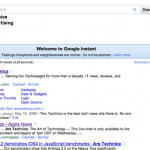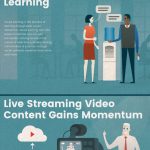Predictions: What Becomes Important As Search Moves Beyond Google, Bing
Predictions: What Becomes Important As Search Moves Beyond Google, Bing
by Laurie Sullivan , Staff Writer @lauriesullivan, (December 22, 2017)
Google said it has expanded the Google Assistant software development kit to support a variety of languages, allowing developers to bring Google Assistant applications to more people around the world. The move will prove lucrative this year. As Google and others build out voice services in apps and devices, marketers will need to find ways to optimize the keywords that trigger optimization in organic and paid search.
Keyword optimization is important in campaigns running across multiple platforms, not just for Google and Bing. Early this year Mazda began running a campaign with 170,000 keywords in Athena — a search platform running on artificial intelligence and machine learning — according to Ian O’Rourke, CEO and founder, Adthena.

The keywords were fed into search-term groups to monitor competitive bidding, which allowed the brand to reduce year-on-year and month-to-month the cost per click by about one-third, according to Mazda UK Digital Marketing Specialist Abi Shepherd.
Search Marketing Daily
caught up with Ian O’Rourke, CEO and founder at Adthena, to get his top three predictions on search in 2018.
1. Search will continue to evolve and move beyond Google
Search is the fundamental way that consumers begin their commerce journey, whether it is via Google, voice search or any other medium. In 2018, we will begin to see search encompass a wider selection of channels, not only the classic search engines.
Amazon will certainly shake up the landscape, with more and more searches originating within the walls of Amazon.com. It will not just be the technology that evolves — consumer behavior will also change.
How we interact and use search queries will continue to evolve. When using voice search, we will adapt our queries to speech rather than writing and when searching for something on the go we will continue telling Google to find it “near me.” The paradigm in how we seek out, experience and engage with search vehicles will be led by consumers, not the tech.
2. Mastering the search landscape will require competitive clarity
Complexity within search auctions will deepen as advertisers become smarter in how they balance more components appearing on search engine results pages. As competition heats up, advertisers will begin feeling the pinch in getting to the top of the page.
A more rounded understanding of behavior on the first page will be required to succeed. Marketers will need to answer the following question: how are you performing on each component and what is your share of voice on the overall page?
Marketers will need a clear understanding of the actions of their competitors and affiliates in order to minimize cost and maximize exposure. Selecting the right third-party technology to assist in this endeavor will make the difference in mastering search or missing out.
3. Efficient adoption of machine learning and AI will become the biggest challenge and opportunity for search marketers
With Google’s 8,000 categories and an auction that is constantly dynamic, human intelligence alone is not enough. Search marketers must rely on massive data sets that can help them derive the right search strategy, understand competitor behavior and build the most effective and efficient campaigns. However, it takes massive scale and reliance on machine learning to be able to analyze this data intelligently.
Automation will be key, and being able to action the AI analyzed data without human intervention will be equally important. Those marketers that embrace AI support will be able to shine a light onto a blind auction and will certainly come out on top in the race for search dominance.
MediaPost.com: Search Marketing Daily
(20)













